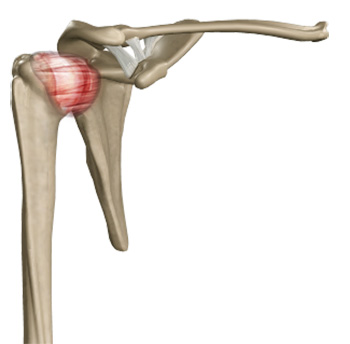Frozen Shoulder

Frozen shoulder, also called adhesive capsulitis is a condition characterized by pain and loss of motion in shoulder joint. It is more common in older adults aged between 40 and 60 years and is more common in women than men.
Causes
Frozen shoulder is caused by inflammation of the ligaments holding the shoulder bones to each other. The shoulder capsule becomes thick, tight, and the stiff bands of tissue called adhesions may develop. Individuals with shoulder injury, shoulder surgeries, shoulder immobilized for longer period, other disease conditions such as diabetes, hypothyroidism, hyperthyroidism, Parkinson’s disease and cardiac diseases are at risk of developing frozen shoulder.
Symptoms
Frozen shoulder may cause pain and stiffness and limit the movements of shoulder.
Diagnosis
Frozen shoulder condition can be diagnosed by the presenting symptoms and radiological diagnostic procedures such as X-rays or MRI scans.
Conservative Treatment
Conservative Treatment options include:
- Non-steroidal anti-inflammatory drugs and steroid injections for pain
- Physical therapy to improve your range of motion
- Sometimes heat may be applied to reduce pain
Surgery
Your surgeon may recommend Shoulder arthroscopy when the conservative treatment does not work. During surgery, the scar tissue will be removed and tight ligaments, if any, will be dissected. Following surgery physical therapy will be advised to bring full range of motion and strengthen the muscles.
A RAISED RISK OF ALL-CAUSE MORTALITY HAS BEEN SEEN IN A STUDY OF NEW USERS OF PRESCRIPTION OPIOIDS FOR NONCANCER PAIN.
The study of 1,066,216 UK, US and Canadian patients found a mortality risk six to 12 times higher for those on morphine compared with codeine.1
Strong opioids including morphine, fentanyl, buprenorphine, oxycodone, and combination opioids, and those on higher morphine doses, had a higher risk of all-cause mortality.This study found that the risks of serious harms increases on stronger opioids and especially for those people on doses of 50 or more morphine milligram equivalents per day.
In the UK, those given morphine had 12.6 times the likelihood of all-cause mortality than those given codeine.
In particular, the use of antipsychotics plus opioids was consistently associated with a higher risk of mortality in both the US and UK cohorts in this study
Meghnaa J, Nadyne G, et al. Comparative risk of mortality in new users of prescription opioids for noncancer pain: results from the International Pharmacosurveillance Study. Pain Online 2024 ():10.1097/j.pain.0000000000003446, October 29, 2024. | DOI: 10.1097/j.pain.0000000000003446
